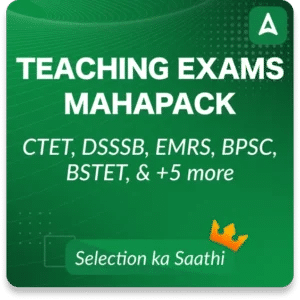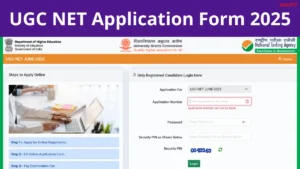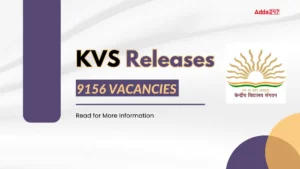Table of Contents
TGT Full Form is Trained Graduate Teacher, which is a post for qualified graduates who wish to become teachers. TGTs are eligible to teach classes from 6 to 8. There are various exams in the country like CTET and other State TET Exams and interested candidates have to qualify for either of these eligibility tests to gain eligibility. The Trained Graduate Teacher can teach in government and private schools across India. In the following article, the candidates will find detailed information on the TGT Full Form.
What is the TGT Full Form?
TGT stands for Trained Graduate Teacher. Candidates aspiring to become TGTs must complete their graduation in any relevant discipline from a nationally recognized university in India. Additionally, they must obtain a B.Ed. degree and qualify for a Teacher Eligibility Test (TET) to be eligible for recruitment to TGT positions.
TGT Eligibility Criteria and Age Limit
The candidates who are preparing to become TGT must go through the following eligibility criteria. These Eligibility Criteria are mostly common for various Recruitments across the country for the TGT Posts.
- Bachelor’s Degree (Honors/Pass) with at least 45% marks in the concerned subjects/combination of subjects and in aggregate.
- B.Ed or equivalent degree from a recognised university.
- CTET Paper II Passed by CBSE
- Working knowledge of Hindi/English
- At least one out of the following should have been at the elective level i.e. English, Mathematics, Natural / Physical Science, and Social Science
TGT Full Form and Subjects Taught by TGTs
The teachers in the TGT category have to teach the following mentioned subjects. Thus check out the list of subjects that the Trained Graduate Teachers are required to teach in the classes from 6-8.
- English
- Mathematics
- Science
- History
- Economics
- Local language
- Geography.
Is CTET Mandatory for TGT?
The Central Teacher Eligibility Test (CTET) is a crucial qualification for aspiring Trained Graduate Teachers (TGTs). Candidates must qualify for CTET or other State TETs to become eligible for various teaching recruitment exams. Without a CTET or State TET certification such as REET, HTET, etc., they cannot apply for these exams. Therefore, after completing their graduation and BEd, candidates must clear CTET or a State TET to be eligible for recruitment opportunities across the country.
Recruitment Exams for TGT Posts
Candidates should stay updated on the latest and upcoming TGT vacancies released by various government departments. It is essential to have a clear understanding of the approximate number of vacancies available for Trained Graduate Teachers (TGTs) across the country to plan their preparation and application process effectively.
| Institutions | Vacancies |
| Kendriya Vidyalaya Sangathan (KVS) | To be Announced |
| Navodaya Vidyalaya Samiti (NVS) | To be Announced |
| Delhi Subordinate Service Selection Board (DSSSB) | To be Announced |
| Army Public School (APS) | To be Announced |
| RPSC Senior Teacher | To be Announced |
| RPSC Grade 2 | To be Announced |
Difference between TGT, PRT, and PGT
The education system typically employs three different types of teachers based on their specialization and qualifications:
- PRT (Primary Teacher): Responsible for teaching students in primary grades (usually grades 1 to 5). They need a Diploma in Education (D.Ed.) or its equivalent qualification.
- TGT (Trained Graduate Teacher): Handles classes between grades 6 and 10, specializing in specific subjects like Science, Mathematics, Social Studies, English, and Languages. They possess a Bachelor’s degree and a B.Ed. or D.Ed.
- PGT (Post Graduate Teacher): Teaches students in higher secondary grades (grades 11 and 12). They have a Master’s degree in their subject area and a B.Ed. or equivalent teaching qualification.
Conclusion:
TGTs are the backbone of secondary education, fostering young minds and shaping their academic journeys. By providing effective instruction, fostering creativity, and building strong relationships with students, TGTs lay the foundation for a brighter future for generations to come.




 UGC NET Application Form 2025 Starts for...
UGC NET Application Form 2025 Starts for...
 Can DELED Qualified Candidates Apply for...
Can DELED Qualified Candidates Apply for...
 KVS Recruitment 2025 Out, Check Kendriya...
KVS Recruitment 2025 Out, Check Kendriya...














